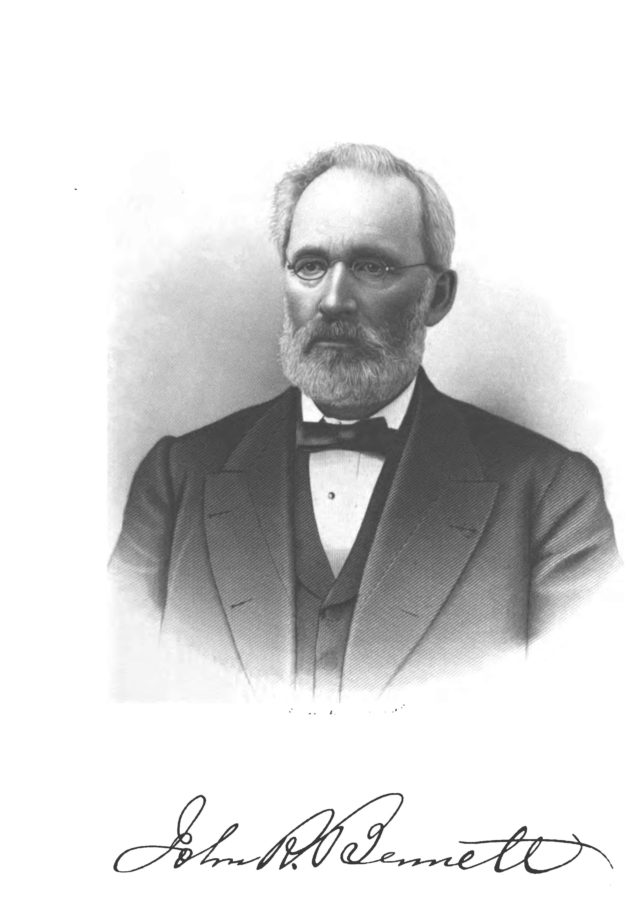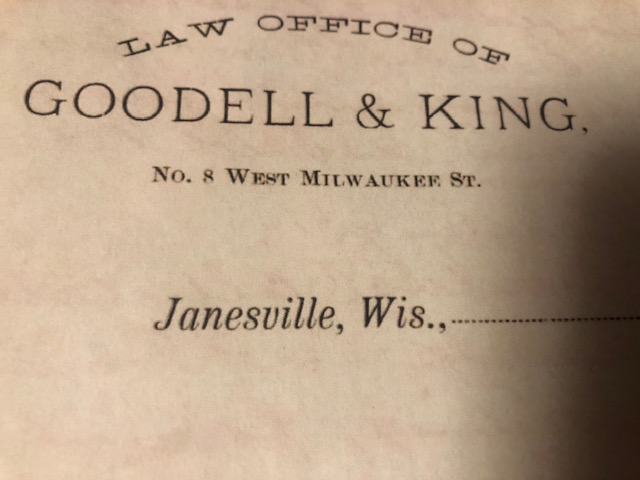“The Gazette is on the side of the people.”
Wisconsin State Journal, July 12, 1875
1870s Janesville, Wisconsin was not a large city, and its residents frequently encountered one another in both business and social settings. During her years in Janesville, Lavinia Goodell developed a very cordial relationship with the proprietors of the Janesville Gazette, both the local editor, Nicholas Smith, and the paper’s co-owner and editor-in-chief, General James Bintliff.

Bintliff was born in Halifax, England in 1824. He came to New York City in 1842 and in 1851 moved to Monroe, Wisconsin where he took a job at a bank. While in Monroe he was elected the Green County register of deeds and in 1859 he was admitted to the bar. In 1860 he became part owner of the Monroe Sentinel newspaper. Bintliff was a passionate abolitionist and helped found Wisconsin’s Republican party.
In 1862, Bintliff recruited a company of Monroe soldiers and was elected their captain. In 1863, his company was attacked and captured by Confederate forces in Tennessee and imprisoned. A few months later the men were freed as part of a prisoner exchange. In 1864, Bintliff was promoted to serve as colonel of the 38th Wisconsin Infantry. In 1865, he was brevetted Brigadier General for leading a successful charge upon Fort Mahone in Virginia. After the war, he returned to Monroe and resumed publication of the Sentinel.
Continue reading →













